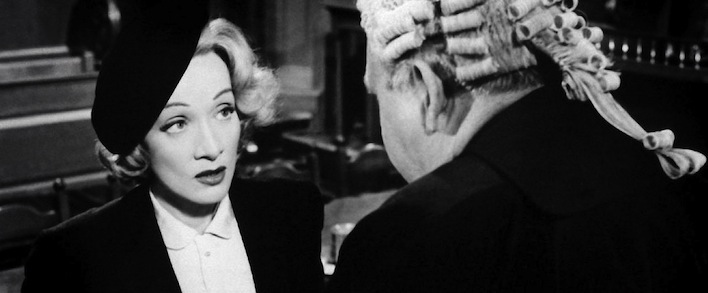In front of the Great Machine of the Law
Abstract
Literature and its representations of the legal world.Remarkable differences between the administration of the law in countries that follow the tradition of the Roman law and those that operate according to Anglo-Saxon customs. The protagonists of the court-room drama: the defendant, the prosecutor, the lawyers, the testifiers, the expert witness, the judge, the jurors, the audience. The machine of the law, its functioning, the atmosphere of the court in their metaphorical representations in literary texts. The frequent difficulty experienced by defendants and audience to understand the machinery of the law. Examples from many literary and filmic texts, from the Book of Job to the novels by Grisham.
Downloads
References
Auchincloss, Louis, The Collected Stories of Louis Auchincloss, Boston, Houghton Mifflin, 1994.
Betti, Ugo, “Tribunale” (1931), Novelle edite e rare, Ed. Alfredo Luzi, Fossombrone, Metauro, 2001: 279-88.
Capuana Luigi, “Alle assise” (1888), Raccolta di opere, Nostra gente, e-book Intertext, 2011, s. n. p.
Čechov, Anton, “Un caso di pratica giudiziaria” (1885), Primi racconti, Ed. Eridano Balzaretti, Milano, Mursia, 1963: 388-91.
Id.,“In tribunale” (1886), Ceserani (2001): 21-29.
Id., “La Sirena” (1886), Racconti 1886-88, Ed. Eridano Balzarelli, Milano, Mursia, 1963: 882-86.
Ceserani, Remo (ed.), L’intreccio delle circostanze. Antologia di racconti giudiziari, Palermo, Sellerio, 2001.
Id., “Romanzi e racconti giudiziari”, Compar(a)ison. An International Journal of Comparative Literature, numero speciale: Between Literature and Law: on Voices and Voicelessness, Eds. Sergia Adamo – Clotilde Bertoni, 1 (2003): 11-22.
Id., Convergenze. Gli strumenti letterari e le altre discipline, Milano, Bruno Mondadori, 2010.
Dostoevskij, Fëdor, Delitto e castigo (1886), pref. di Natalia Ginzburg, Torino, Einaudi, 1993.
Edlinger, Karl Andreas (ed.), Fiat Justitia. Jurisengeschichten aus 15 Ländern, München, DTV, 1985.
France, Anatole, “Crainquebille“ (1901), Ceserani 2001: 90-116.
Friedl, Hermann, “Fiat Justitia“, Edlinger 1985: 283-91.
Grisham, John, L’ultimo giurato (2004), Milano, Mondadori, 2004.
Hichens, Robert S., Il caso Paradine (1933), Ed. Remo Ceserani, Palermo, Sellerio, 1995.
Kafka, Franz, Il processo (1925), Ed. Ervino Pocar, Milano, Mondadori, 1992.
Klíma, Ivan, Soudce z milosti (1986), trad. inglese: Judge on Trial, London, Vintage, 1992.
“Il libro di Giobbe”, La Bibbia, traduzione interconfessionale in lingua corrente, Torino, Leumann, 1985: 860-97.
Mortimer, John, The First Rumpole Omnibus, London, Penguin, 1981.
Id., The Second Rumpole Omnibus, London, Penguin, 1987.
Id, Avventure di un avvocato (1978), Ed. Stefania Michelucci, Palermo, Sellerio, 1999.
Rose, Reginald, Twelve Angry Men, testo teatrale (1954), trad. it. La parola ai giurati, Roma, Arcadia & Ricono, 2008.
Scarfoglio, Edoardo, Il processo di Frine (1884), Ed. Remo Ceserani, Palermo, Sellerio, 1995.
Train, Arthur, “The human element”, Tutt and Mr. Tutt, New York, Scribner, 1920.
Verga, Giovanni, “Un processo” (1864), Novelle, Ed. Giulio Carnazzi, Milano, Rizzoli BUR, 1988, vol. II: 60-67.
Wassermann, Jakob. Il caso Mauritius (1928). Milano, Corbaccio, 1933.
Wiechert, Ernst, Il giudice(1948), Ceserani 2001:147-63.
Wishingrad, Jay (ed.), Legal Fiction. Short Stories about lawyers and the law, London, Quartet Books, 1995.
Zola, Émile, La bestia umana (1890), Intr. di Roland Barthes, Milano, Rizzoli, seconda ediz., 1981.
Filmografia
L'affaire Maurizius, Dir. Julien Duvivier, France - Italia, 1954.
La bête humaine, Dir. Jean Renoir, France, 1938.
Il caso Maurizius, Dir. Anton Giulio Majano, Italia, 1961.
Der Fall Maurizius, Dir. Theodor Kotulla, Deutschland, 1981.
Human Desire, Fritz Lang, U.S.A., 1954.
The Paradine Case, Dir. Alfred Hitchcock, U.S.A., 1947.
“Il processo di Frine”, Altri tempi, Dir. Alessandro Blasetti, Italia, 1952.
Twelve Angry Men, versione it. La parola ai giurati, Dir. Sidney Lumet, U.S.A., 1957.
Copyright Notice
You are free to copy, distribute and transmit the work, and to adapt the work. You must attribute the work in the manner specified by the author or licensor (but not in any way that suggests that they endorse you or your use of the work).









